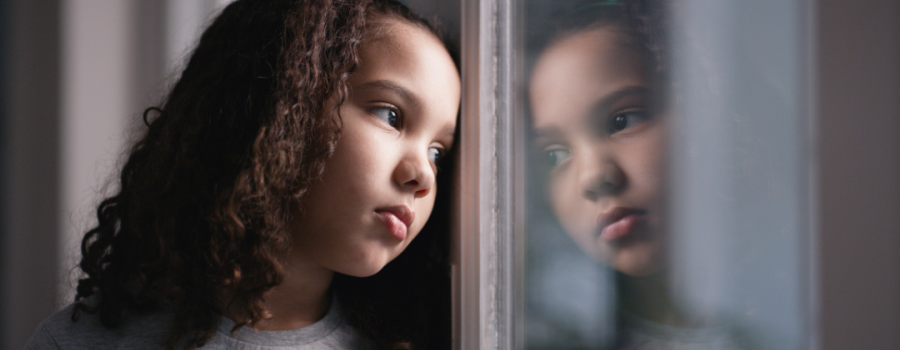Childhood Trauma: What is it?
You may have heard phrases such as “childhood trauma” or “traumatic experience”. But what really is trauma? Unfortunately, childhood trauma is incredibly common - one in four children in our community will experience a traumatic event before the age of 16. These events are not run-of-the mill stresses like running late to school or getting assignments done. They are things such as physical or sexual abuse, or life-threatening events like a car accident, natural disaster, or witnessing violence.
For it to be a traumatic event, first, it must pose a real or perceived threat to the child’s life/well-being or that of someone close to them (like a parent or a best friend). And second, this event causes overwhelming feelings of fear, horror, and helplessness. The body will respond as well – our “fight, flight, or freeze” response will kick in, the body will increase its heart rate, and the child may feel dizzy, shaky, or begin to breathe rapidly as the body releases stress hormones like adrenaline and cortisol, which is our bodies’ way of trying to protect us.
How Trauma Manifests Itself in Children
Signs and symptoms of traumatic stress caused by a traumatic event can be easily misunderstood in children. One of the greatest challenges in addressing childhood trauma is that it can and does look different in every child – even siblings who may have witnessed or experienced the same traumatic event.
Often children will act a certain way or show certain behaviors because of their trauma. Starting fights, talking back, aggression, depression, self-harm, eating too much or too little, over or under sleeping– all are ways that children can behave after experiencing trauma. Other common signs of traumatic stress in children can be an inability to focus, quick to startle or react, recurrent nightmares and/or flashbacks. It is important to think about what is behind the behavior as there is often an underlying reason it is happening.
How to Help Our Youth
So how do we help our relatives, neighbors, or the youth in our community who have experienced trauma?
It begins with a mindset that looks deeper than the behavior and understands something happened that has led to that behavior.
With the right mindset, the single most important tool to reach youth who have traumatic stress is to create a stable, caring relationship with them.
A stable relationship is the building block to trust. When we create and foster relationships with them, we can recognize when they are showing signs of distress, provide support, and avoid that distress growing into disruptive behaviors.
Helping a child who has experienced trauma requires being proactive. So, what does that look like?
- Build relationships with the child so that they will listen and respond
- Listen to both their words and to their nonverbal communication
- Learn their triggers, areas that might be sensitive for the youth
- Be present, offer support as soon as something occurs that might lead to distress for a youth
- Be patient, there is no timetable for healing
- Search out information online and educate yourself on trauma
- Recognize when a mental health professional may be needed
When a child experiences trauma it can not only affect them, but their family and their community. It is crucial to recognize it and be proactive in its treatment, in order help everyone live a healthy, happy life.
This blog article was contributed by Shannon Amundson, Executive Director of Nexus-Mille Lacs Family Healing.
Nexus Family Healing is a national nonprofit mental health organization that restores hope for thousands of children, families, and adults each year through services in community mental health, crisis and stabilization, foster care and adoption, and residential treatment. For over 50 years, we’ve used innovative, personalized approaches to heal trauma, break cycles of harm, and reshape futures. We believe every child is worth it — and every family matters. Access more resources at nexusfamilyhealing.org/resources.
